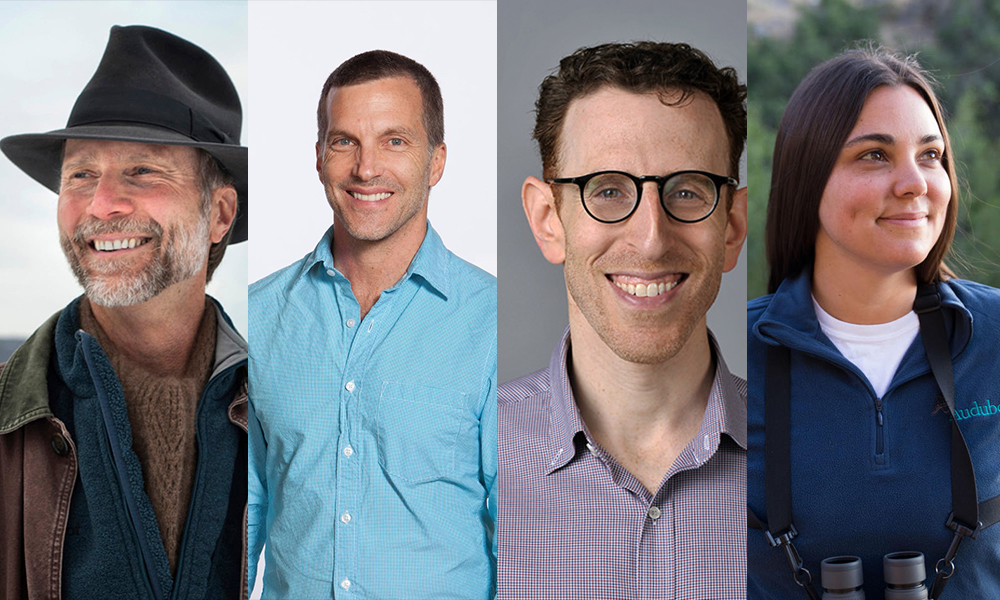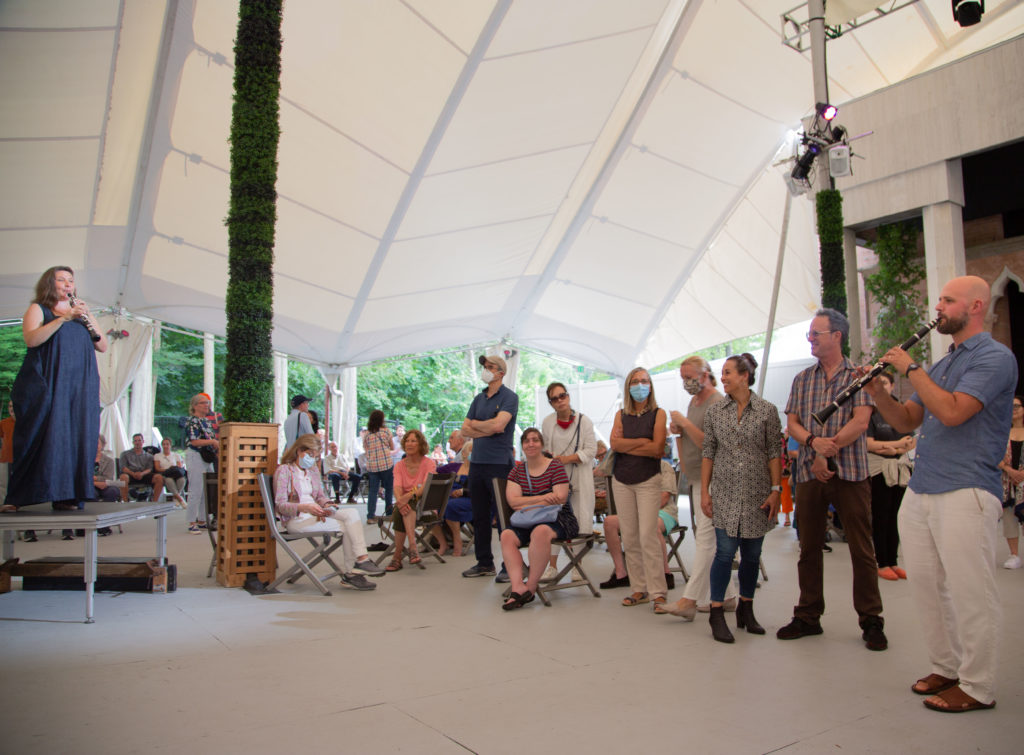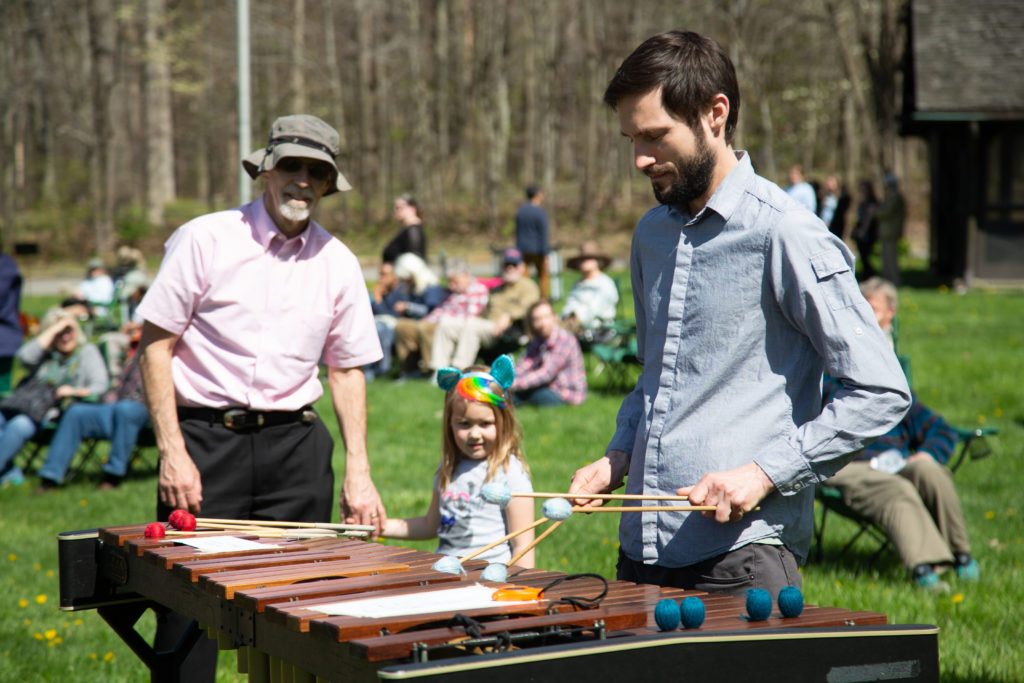
- This event has passed.
Online
September 16, 2021 @ 6:00 pm - 7:00 pm EDT
Event Navigation
Ten Thousand Birds: At the Intersection of Art, Wildlife, and Climate Change
An online Discussion with John Luther Adams, Pulitzer Prize-winning and GRAMMY winning composer; Representatives from the National Audubon Society; and members of Alarm Will Sound.
Join us on Zoom September 16th at 6pm ET for a conversation about the role of the arts in environmental awareness. The panel will consist of John Luther Adams, who Alex Ross (The New Yorker) called “one of the most original musical thinkers of the new century”; John Rowden, Senior Director Bird-Friendly Communities with the National Audubon Society; Brooke Bateman, Director of Climate Science at the National Audubon Society; and Alan Pierson, Artistic Director of Alarm Will Sound.
This event is free but requires registration.
About the participants
John Luther Adams
For John Luther Adams, music is a lifelong search for home—an invitation to slow down, pay attention, and remember our place within the larger community of life on earth.
Living for almost 40 years in northern Alaska, JLA discovered a unique musical world grounded in space, stillness, and elemental forces. In the 1970s and into the ’80s, he worked full time as an environmental activist. But the time came when he felt compelled to dedicate himself entirely to music. He made this choice with the belief that, ultimately, music can do more than politics to change the world. Since that time, he has become one of the most widely admired composers in the world, receiving the Pulitzer Prize, a Grammy Award, and many other honors.
In works such as Become Ocean, In the White Silence, and Canticles of the Holy Wind, Adams brings the sense of wonder that we feel outdoors into the concert hall. And in outdoor works such as Inuksuit and Sila: The Breath of the World, he employs music as a way to reclaim our connections with place, wherever we may be.
A deep concern for the state of the earth and the future of humanity drives Adams to continue composing. As he puts it: “If we can imagine a culture and a society in which we each feel more deeply responsible for our own place in the world, then we just may be able to bring that culture and that society into being.”
Since leaving Alaska, JLA and his wife Cynthia have made their home in the deserts of Mexico, Chile, and the southwestern United States.
John Rowden
John joined Audubon in 2009 when he was hired by New York City Audubon to direct community science and outreach for the chapter throughout the city. In 2013, he transitioned to the National Audubon Society, first working on the Toyota Together Green program before becoming Audubon’s director of community conservation in 2016 and senior director for bird-friendly communities in 2019. His work at Audubon has focused on engaging new audiences in Audubon’s conservation efforts, personally and through Audubon’s extensive national network and programs like Plants for Birds. He earned his PhD in Zoology from Duke University.
Alan Pierson
Alan Pierson has been praised as “a dynamic conductor and musical visionary” by The New York Times, “a young conductor of monstrous skill” by Newsday, “gifted and electrifying” by The Boston Globe, and “one of the most exciting figures in new music today” by Fanfare. He is the Artistic Director and conductor of the acclaimed ensemble Alarm Will Sound which has been called “the future of classical music” by The New York Times and “a sensational force” with “powerful ideas about how to renovate the concert experience” by The New Yorker.
Mr. Pierson served for three years as the Artistic Director and conductor of the Brooklyn Philharmonic. The New York Times called Pierson’s leadership at the Philharmonic “truly inspiring,” and The New Yorker’s Alex Ross described it as “remarkably innovative, perhaps even revolutionary.” Pierson has also appeared as a guest conductor with the Los Angeles Philharmonic, the Chicago Symphony Orchestra, the Hamburg Symphony Orchestra, L.A. Opera, the London Sinfonietta, the Steve Reich Ensemble, the Orchestra of St. Luke’s, Carnegie Hall’s Ensemble ACJW, the Tanglewood Music Center Orchestra, the New World Symphony, and the Silk Road Project, among other ensembles. He is Principal Conductor of the Dublin-based Crash Ensemble, co-director of the Northwestern University Contemporary Music Ensemble, and has been a visiting faculty conductor at the Indiana University Jacobs School of Music and the Eastman School of Music. He regularly collaborates with major composers and performers, including Yo Yo Ma, Steve Reich, Dawn Upshaw, Osvaldo Golijov, John Adams, Augusta Read Thomas, David Lang, Michael Gordon, Donnacha Dennehy, La Monte Young, Iarla Ó Lionáird, and choreographers Mark Morris, John Heginbotham, Akram Khan and Elliot Feld
Mr. Pierson received bachelor degrees in physics and music from the Massachusetts Institute of Technology, and a doctorate in conducting from the Eastman School of Music. He has recorded for Nonesuch Records, Cantaloupe Music, Sony Classical, and Sweetspot DVD..
Brooke Bateman
As the Director of Climate Science at the National Audubon Society, Dr. Brooke Bateman collaborates with scientists, volunteers, and Audubon’s Climate Initiative team to develop research focused on climate and the conservation of birds and the places they need today and in the future. In this role she led a team of scientists in developing Survival by Degrees: 389 Bird Species on the Brink, Audubon’s 2019 Birds and Climate Change Report. As director of Climate Watch, she works with community volunteers to understand how climate change currently affects birds in North America. Her research focus is on spatial ecology and conservation, emphasizing the effect that extreme weather events and climate change have on biodiversity. Brooke works closely with on-the-ground practitioners and stakeholders to link climate research to on-the-ground conservation and management actions.
Before joining the Audubon science team in 2016, Brooke conducted postdoctoral research on the influence of climate and weather on birds and marsupials with James Cook University, The University of Tasmania, and CSIRO in Australia. She also served as postdoctoral associate at the University of Wisconsin-Madison and, later as an assistant scientist, on a NASA project researching how extreme weather events affect birds. Brooke received her PhD in Zoology and Tropical Ecology at James Cook University in Australia in 2010, a Graduate Diploma of Research Methods from James Cook University in 2006, and a Bachelor of Science, cum laude, from Boston College in 2003. Brooke enjoys hiking, drawing, yoga, and birding with her daughter. Her favorite bird is the Common Loon.
Info on Ten Thousand Birds
Ten Thousand Birds is based on the songs of birds that are native to, or migrate through the American northeast and midwest. It explores the connections between nature and music, a topic that John Luther Adams has pursued over the course of his remarkable career. Most recently in Sila: Breath of the World and Become Ocean (for which he won the 2014 Pulitzer Prize and Grammy) he has portrayed—in big musical gestures—the awe one experiences in response to nature’s grandeur. In Ten Thousand Birds, on the other hand, the source of inspiration is particular birdsongs, captured in minute detail.
Ten Thousand Birds has an open, modular structure: each page of music can be combined in varied ways. Our 70-minute interpretation follows the cycle of a day, starting with bird songs heard in the morning, then afternoon, evening, night, and return to morning. It also uses space by moving the performers around the venue as they play, and encouraging the audience to walk around to experience the music from many perspectives.


